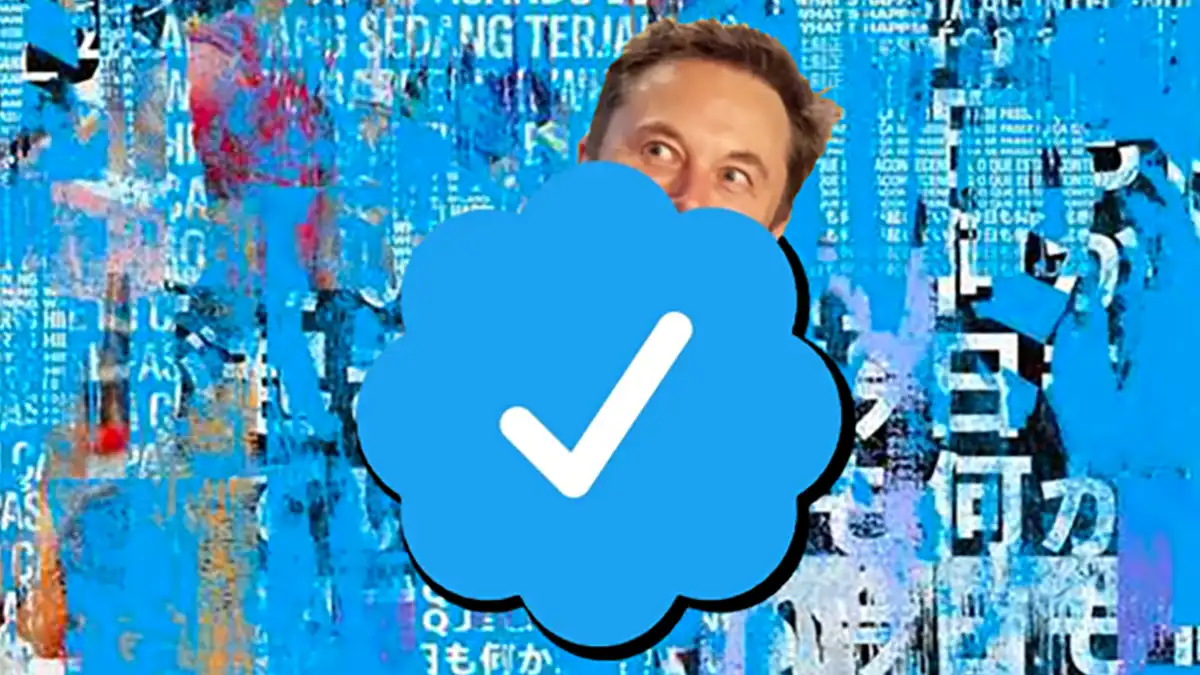
Twitter verification: noblesse oblige
The Twitter check disappears, reappears, disappears, reappears. It's not easy to follow Elon Musk's improvisations/experiments after he took over the network. However, he clearly expressed his ambition: to democratize the symbolic privilege materialized by the famous blue badge, which would only certify the subscription to a paying membership. This is the end of a 10-year period that Opsci has been studying, as the subject is interesting for many reasons: algorithms and filtering, legitimacy and influence, information, power and counter-power...
Twitter has never been clear about its methods of awarding the badge. We have reconstructed the dates of verification (which are not public data). After 2015, the number of new entrants stagnated around a few thousand per month.
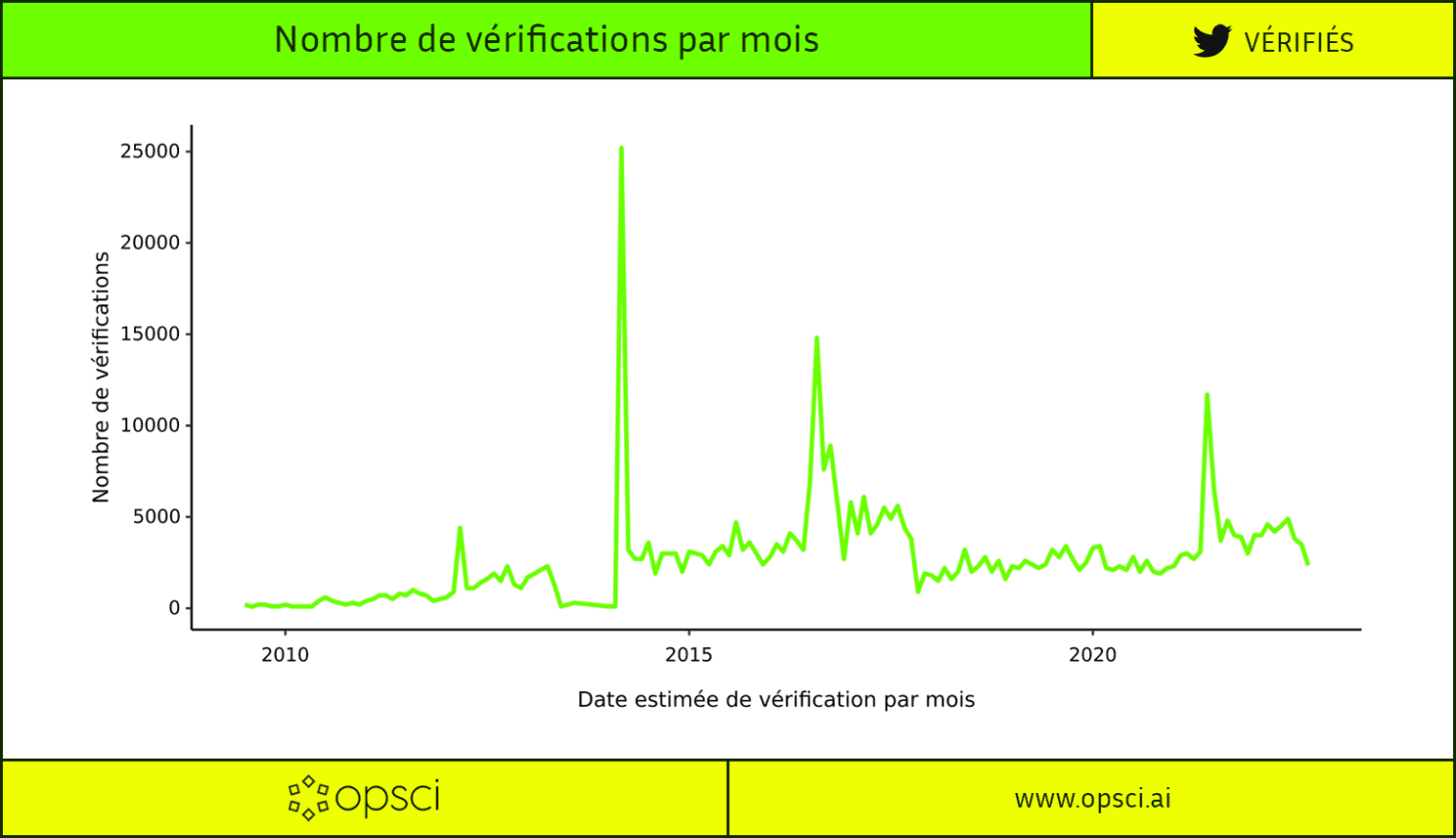
Beyond some professional criteria (press card, elections...), the mechanism is opaque. The comparison of the number of verified accounts by profession and the median number of followers indicates, for example, that the criterion of the size of the community of subscribers is very relative.
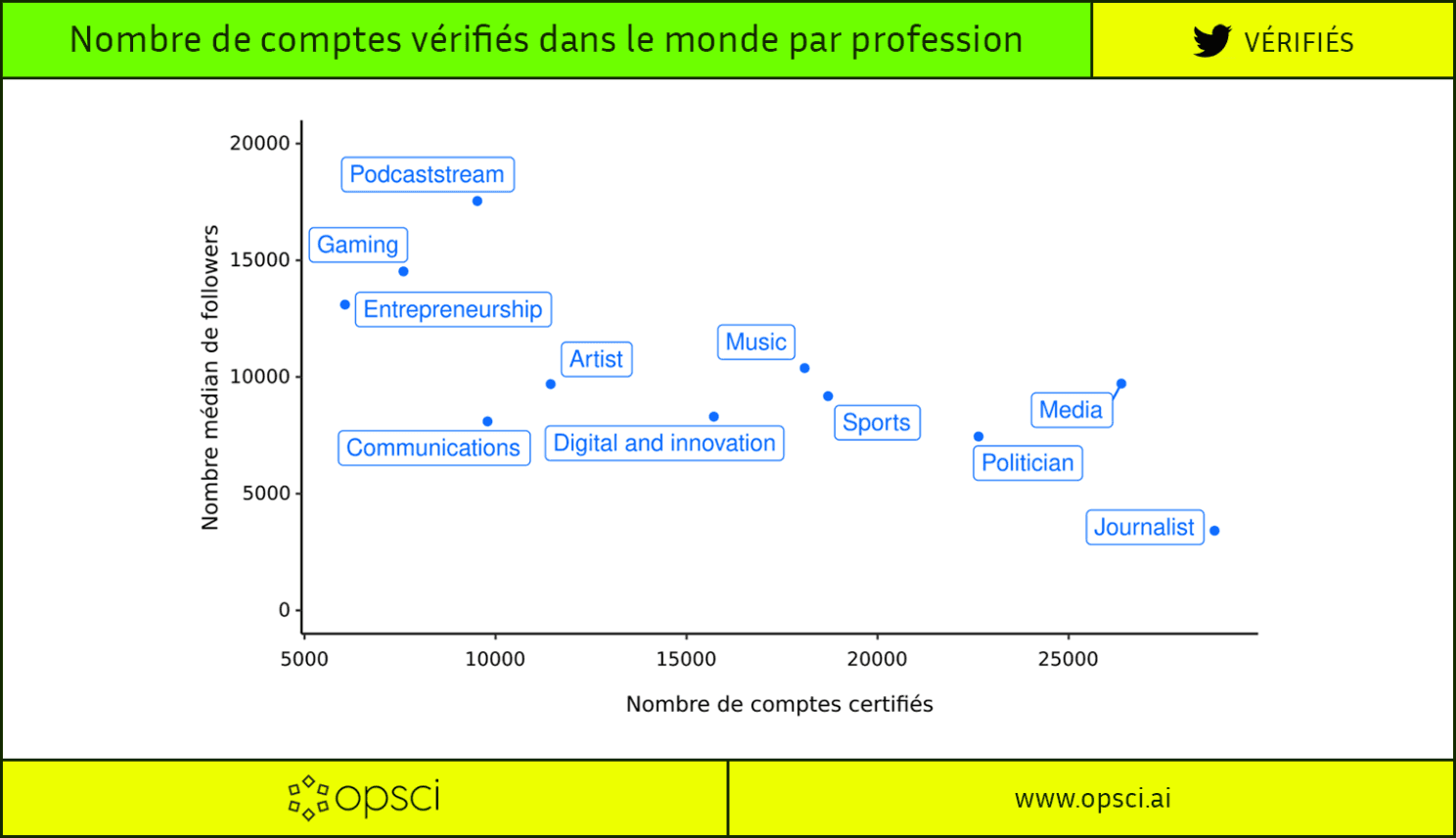
The number of verified accounts also varies between Twitter's national branches. The high numbers in North America and the UK are obvious, the low number of verified accounts in Japan is surprising.
Verification is more selective in some countries. In Mexico, for example, verified accounts have a median of 27,000 followers, compared to only 4,500 in Canada. 10,400 in France, versus 6,700 in the United States.
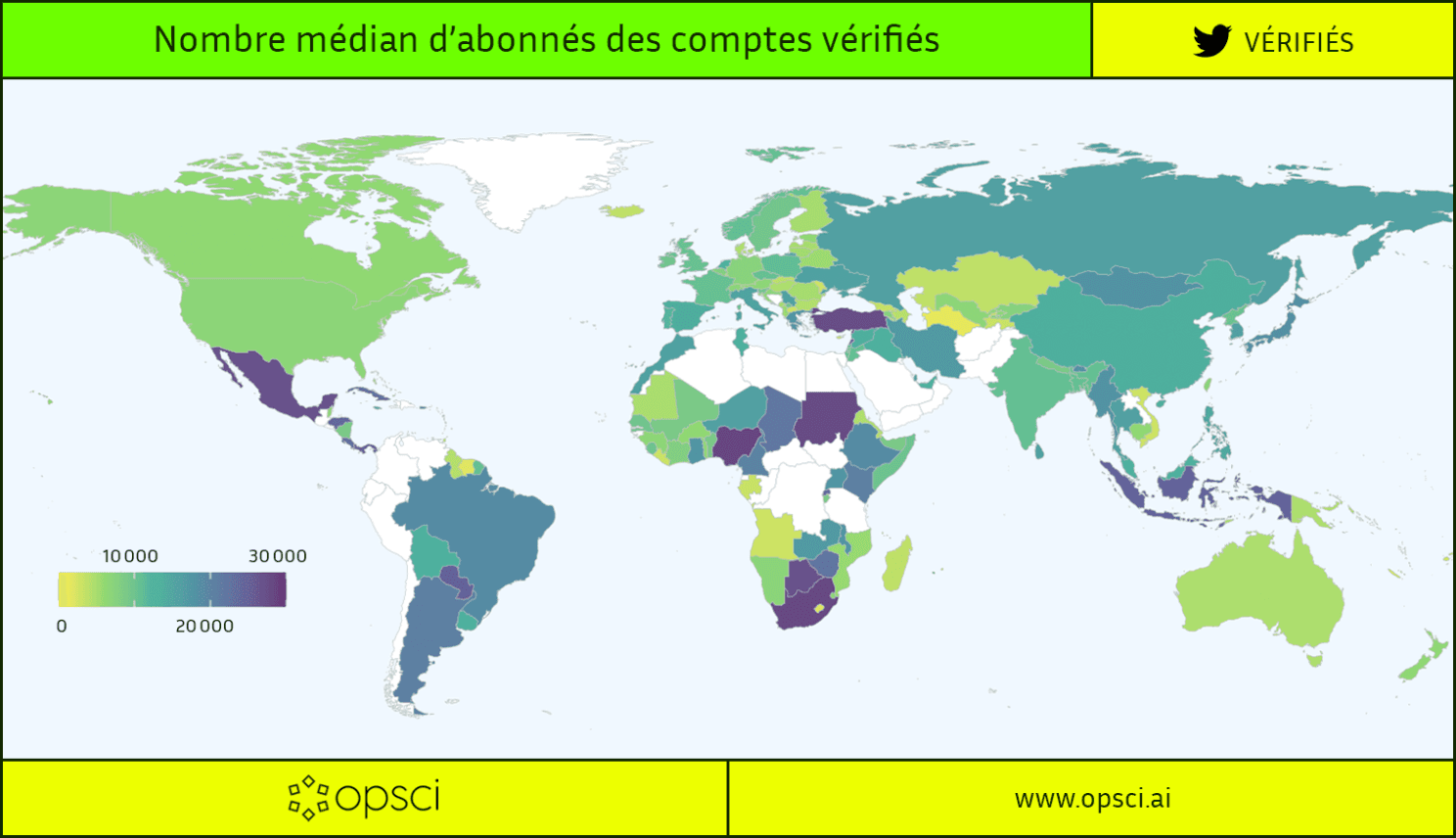
In France, journalists are the most "verified" profession, while activists struggle to obtain the badge (66 accounts against more than 1500 internationally). Despite her 37,000 followers and her presence in the traditional media, Camille Etienne is not certified. Note that neither is Julian Assange, and that in 2017 it pissed him off, to the point that WikiLeaks was considering investigating the dark collusion that would allow certification.
Newly verified accounts tend to have fewer followers, averaging less than 1,500 in recent months. Until 2017, Twitter probably tried to verify as many popular accounts as possible. There are still traces of this: in 2022, more than half of the verified accounts produced at least one tweet with more than 100 RTs.
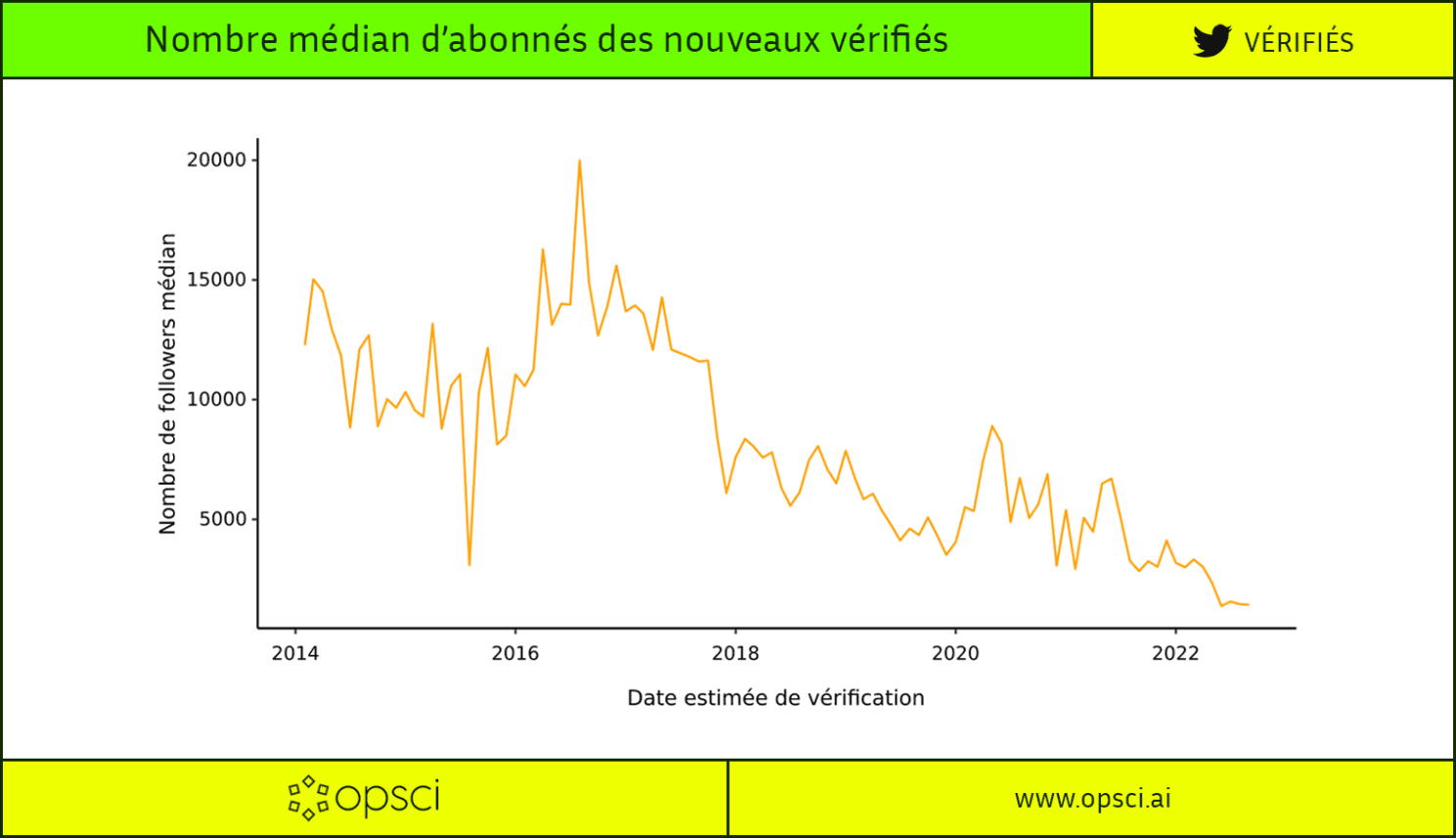
On the surface, the badge no longer plays its role in documenting "Twitter personalities". Only 17% of the 7653 accounts that posted more than 10 tweets retweeted more than 100 times in 2022 are verified. Highly visible accounts (like HugoDécrypte) are not certified.
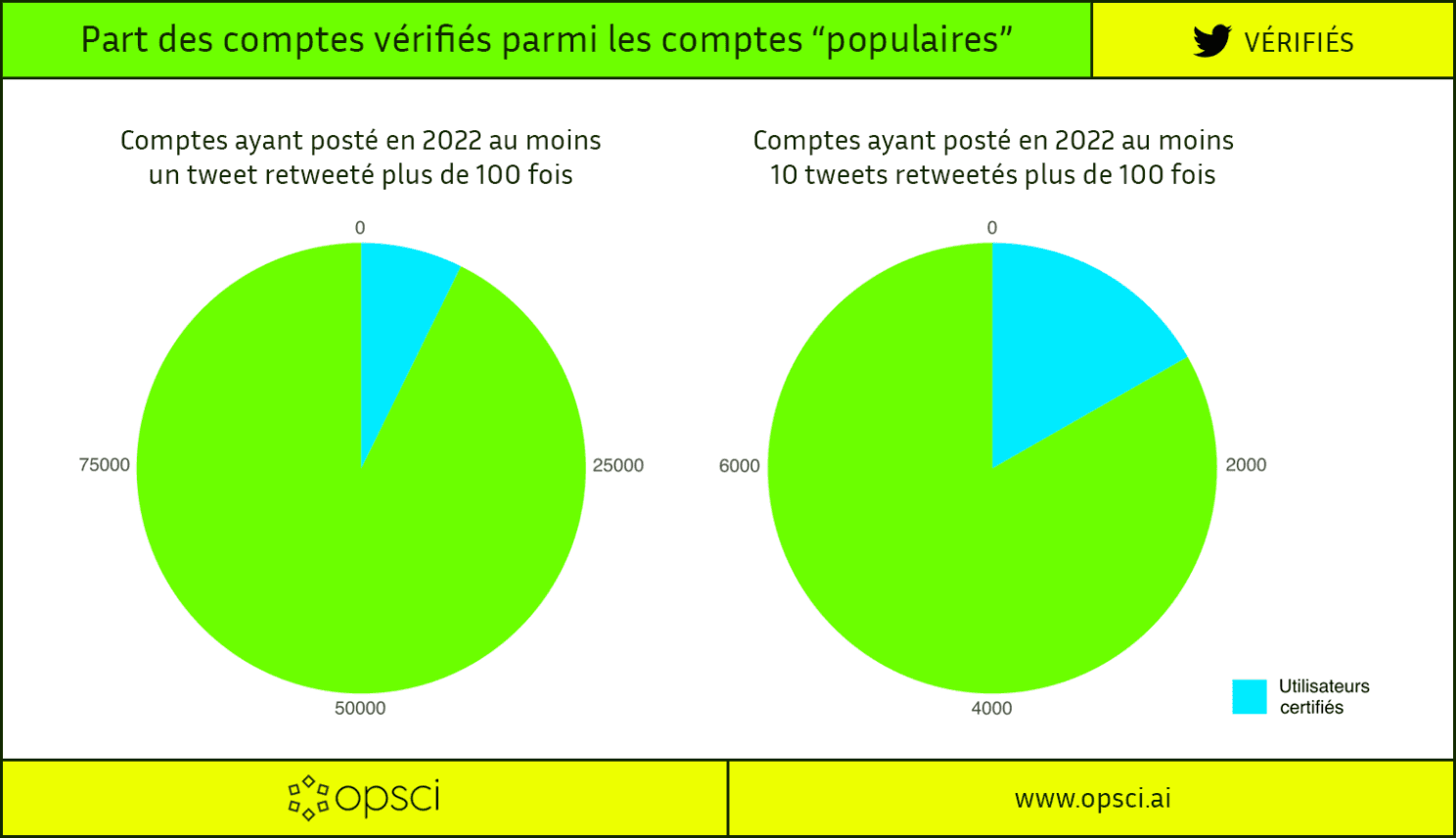
However, influence is not just about engagement. Opsci has established a ranking of the most "organically" popular, legitimate and central figures in the network. 62% of "our" Top500 are verified: so certification wouldn't work so badly!
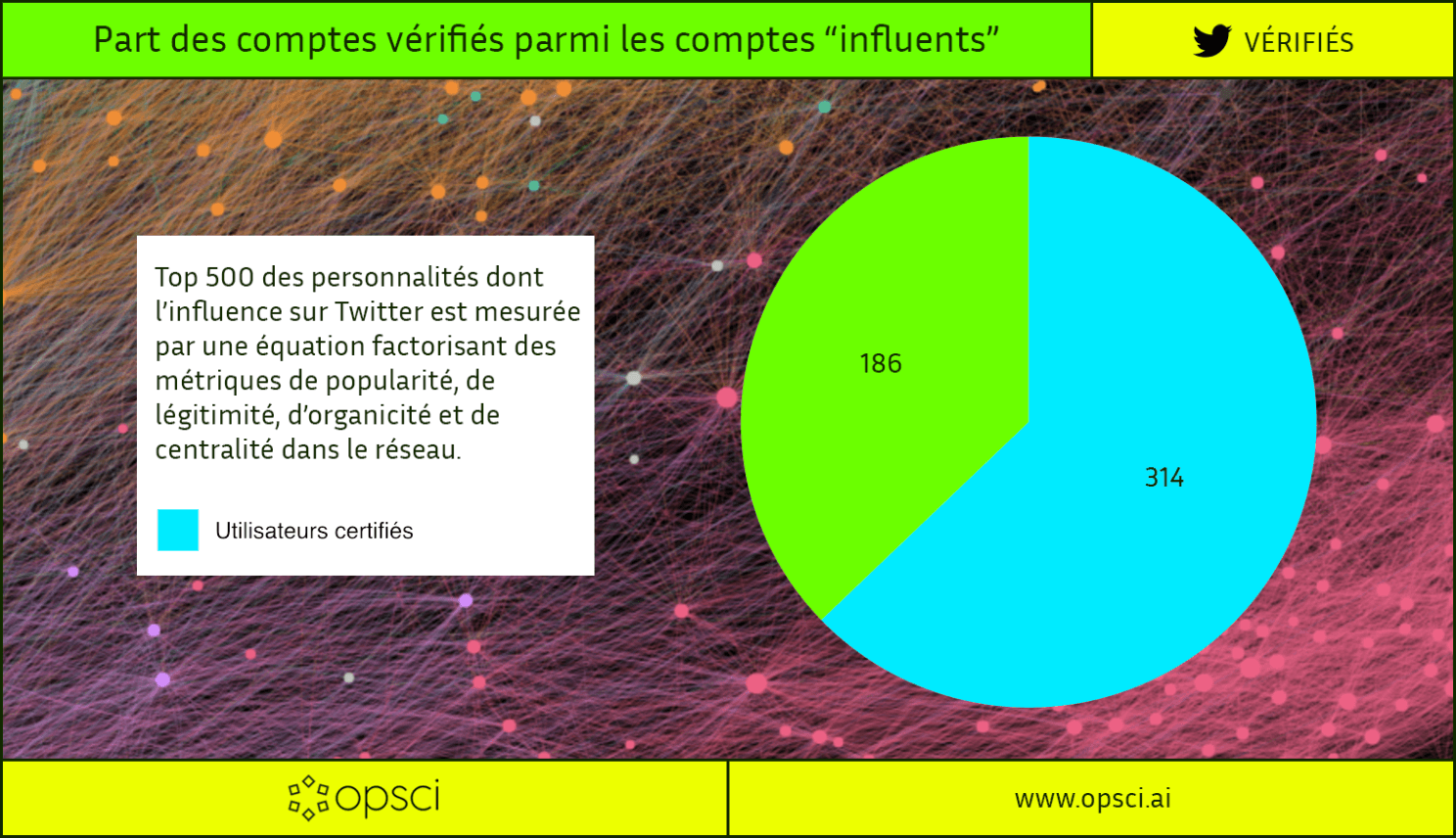
The move to paid verification, associated with the features of the premium account, aims to replenish the coffers of Twitter. But, according to Musk, it's primarily a way to democratize a flawed process. This is highly debatable. The title of nobility, in spite of its opacity and its defects of attribution, has an indisputable public value that its merchandising annihilates instantly. The mixture of notoriety and legitimacy, the digital charisma, cannot be bought. Or shouldn't.
By trivializing this symbol of influence, which was an essential strength of Twitter - directly, through the referral it proposed by distinguishing "public interest" accounts, and indirectly, by promoting virtuous forms of contribution to the discussion with the objective of being "recognized" - the commitment of political, media, economic and expert elites risks being eroded. Yet it is this commitment that has positioned the social network at the heart of public debate for more than a decade. Worse, with an algorithm that favors verified users without any other distinction mechanism than subscription, information is "delegitimized", and even exposed to more manipulation, contrary to what Elon Musk claims.
As for the question of verifying the identity of accounts, if it were not a condition of certification as has been mentioned, it is hard to see how the mechanism would have any effect on pseudonymity. Assuming, moreover, that it is necessary to fight against pseudonymity... It should be noted :
that a certain number of certified accounts were under pseudonym and that the quality of their production was certain ;
that anonymity is sometimes the condition of their expression, it is quite fundamental;
that many people say horrible things all day long on Twitter, with their real name ;
and that LinkedIn, a network of real identity by nature, does not escape publications that, if they are not condemnable by the law, are no less abject. First of all, because the invitation to "keep it professional" does not prevent one from being professionally detestable, and secondly, because one can observe a politicization of the social network, and therefore a polarization, which favors the radicalization of expressions, and ultimately hateful outbursts, and also because not all users are aware of the visibility of their comments beyond the only conversational space in which they think they are participating.
Finally, what about Musk's financial calculation? 500k verified (existing) x $8 = $48M/year, a low price to cut short the pleasure of a timeline rich in "lambda" peers as well as patented stars, and the (admittedly meager) hope of being able to propel oneself to the top of the network's symbolic hierarchy. If we widen the catchment area to include all those who regularly post tweets that are a bit successful, and who would therefore be potentially interested in boosting their audience by seeing their publications go ahead of the others thanks to the badge, we painfully reach 2 to 3 million users. No huge business prospects. The key to success would therefore lie in the other features unlocked by the subscription, so... Why put verification in play?
TL;DR The badge allowed a small number to emerge from the stream. Its distribution was a bit mysterious, but its effectiveness was real. Its symbolic power was associated with the notion of public interest, and its commodification could help to empty Twitter of its substance.
As part of our work on the dynamics of influence, Opsci is studying the politicization of LinkedIn. If you are interested, please contact us!